Blog
What can a premium site search solution offer over Magento’s native search?
On-site search has been on the radar of eCommerce store owners for some time now, as a direct route for improving conversion rates and boosting sales. Studies have shown that search-assisted customer journeys are far more likely to result in a purchase than journeys that don’t involve search. It clearly makes sense, therefore, for retailers to evaluate the on-site search functionality available within their stores, and to look at how enhancements can be made to that functionality, in order to provide a best of breed solution that delivers solid and measurable improvements. For those retailers who have chosen Magento as their ecommerce platform, there are some key limitations to be aware of in terms of on-site search, leading many Magento-based retailers to explore third-party providers of on-site search tools.

Limitations and weaknesses on Magento’s search offering
Back at the start of Magento’s evolution into the world’s leading ecommerce platform, on-site
search was just one component amongst many, within an all-encompassing, functionally rich platform. Back in 2007, when Magento launched, few retailers predicted just how central to online shopping search would ultimately become. With the rise of smartphone shopping, the role of search gets ever stronger, and it is likely to soon become the primary navigation method for many online stores (as with stores like Amazon and eBay). Whilst Magento has tweaked and refined its search tool since 2007 (and looked to Solr and now Elasticsearch as a foundation in Magento Enterprise Edition), it still has the same core limitations. In today’s eCommerce world, that basic search functionality and matching capabilities doesn’t quite cut it, when compared with some of the premium search solutions that are now available. To see why a third party tool may be the best choice for a growing retailer, it helps to start by examining some of the weaknesses of Magento’s core search offering.
Because Magento’s core search functionality is driven by a text-based algorithm, search results can suffer from a variety of problems. Result sets can be enormous and filled with a jumble of largely irrelevant items. On other occasions, the dreaded ‘no results found’ message is displayed, when it is clear that relevant results are actually available for sale in the store.
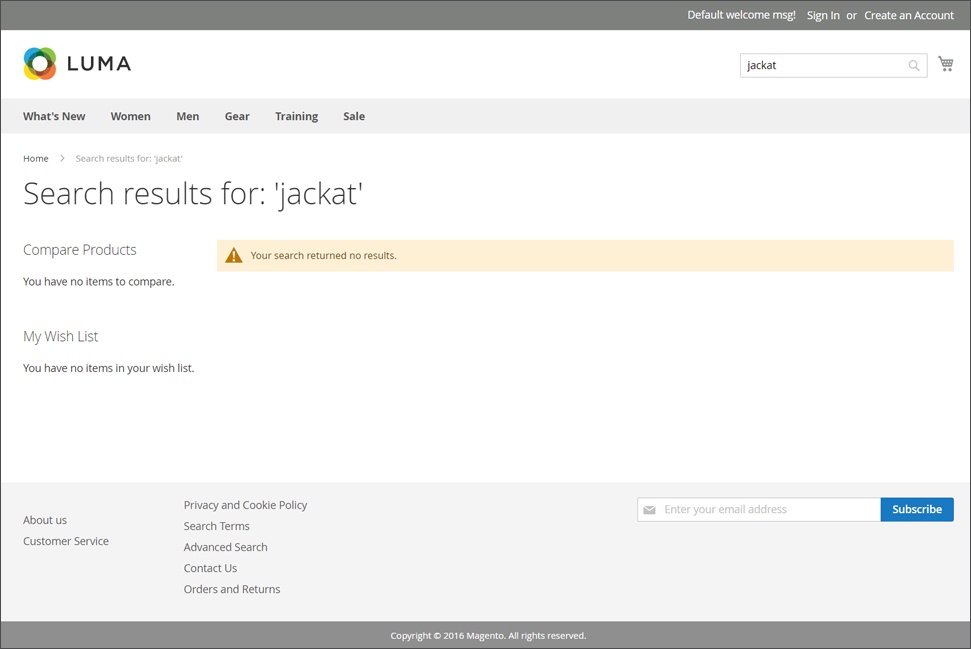
Another limitation of Magento’s search is that the options for merchandising results are virtually non-existent. Even if a result set manages to be reasonably accurate, there is no simple way for the store owner to influence the sort order of results, or to merchandise the results to present them in the best possible light (without involving a developer).
Performance can also be something of a problem, especially on stores with a very large product catalog. Since the core search function is just one component of the overall Magento platform, it has not had any significant time spent on performance optimisation, which means that searches can be sluggish, as can the display of results.
The final area where core Magento search can appear a little limited is in search analytics and reporting. Magento does provide details of search terms used and this information can be used to manually adjust products for better results in future. However, this is a slow and manual process, and there is little in the way of actual analysis and interpretation of on-site search usage.
How a third party search solution can address these issues
The latest generation of search tools take a wholly different approach from the keyword-driven algorithms of earlier systems. Klevu for example utilises natural language processing (NLP) and machine learning, which helps to drive significant improvements in accuracy and customer satisfaction. In recent times, smart search has finally reached mainstream take-up and is revolutionising the way search is used and exploited within eCommerce.
Natural language processing (NLP), which is a big part of Klevu’s core offering, focuses on meaning and context instead of keywords, which goes a long way towards improving relevancy and accuracy of results. Klevu also usesmachine learning technology to optimise the results based on what users are clicking, adding to cart and purchasing, whilst also learning from how users are interacting with search (to understand more about spelling errors for example). This is another key selling point for us and it’s one of the biggest things that larger retailers are looking for at the moment.
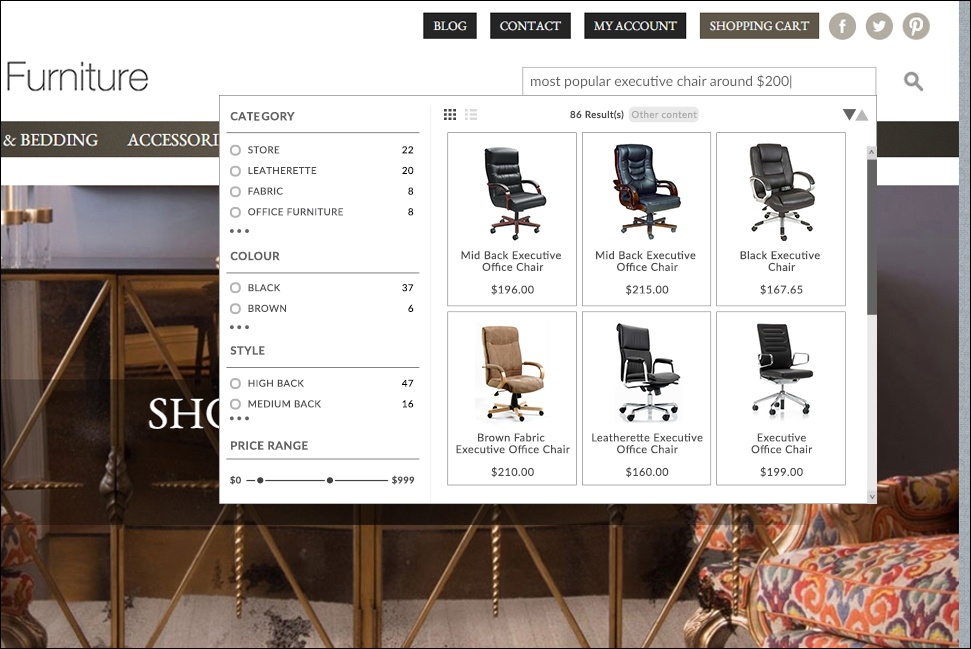
It’s not just the algorithms that have changed dramatically in the wave of smart search tools entering the market currently, as the whole search journey has been addressed, with many innovations at the front-end too. Most third party search applications now offer comprehensive search merchandising facilities, allowing retailers to sort results, to weight certain products or categories, and to retain the native search results page. Prices, thumbnail images, colour swatches and product options are all also available within the search results if the native layout is used (as can be achieved out of the box with Klevu), helping customers identify the products they are looking for as quickly as possible.
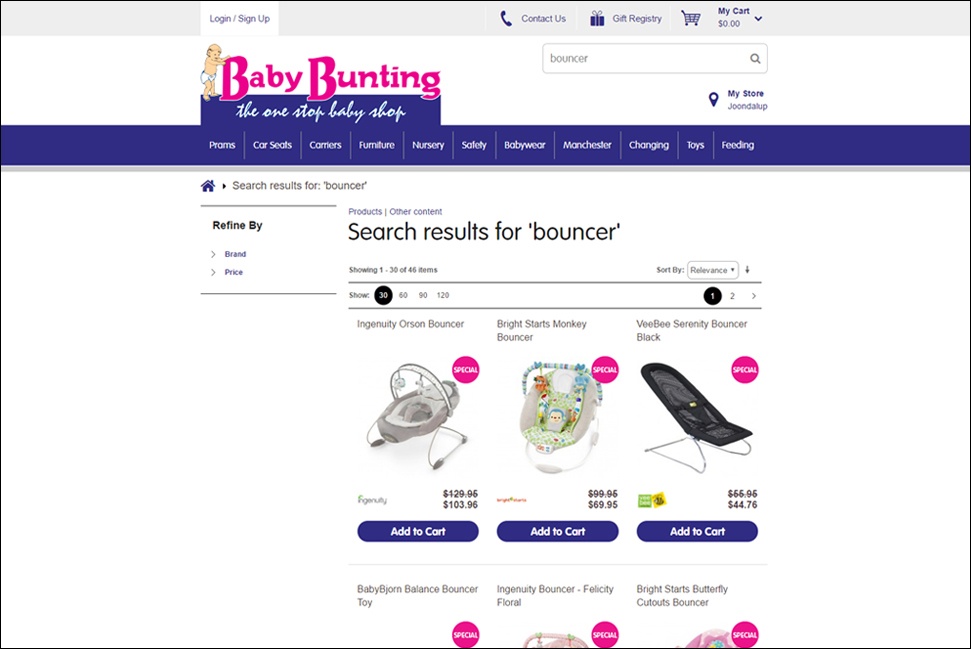
Finding products as quickly as possible through on site search is key for a successful customer journey, especially now that many shoppers are choosing to use their smartphones to browse retail sites and make purchases. This need for speed has led search providers to develop a couple of other user-centred features – auto suggest and the rich search dropdown, which is now almost standard with online retail.
With Klevu, auto suggest kicks in after just two or three characters have been typed into the site search box a dropdown is then displayed with the most relevant results, with those results being further refined as the customer continues to type (or use filtering). Our instant search box also means that customers are presented with a visual result set that is highly relevant and ultra fast, with no page reload required (all done via JavaScript).

Search is just one element of the core Magento platform, and as such, has always had to compete against other functionality when it comes to ongoing development and performance tuning by the Magento team. A third-party solution, on the other hand, is developed and maintained as a standalone tool, and so has much more attention and expertise devoted to it. The third-party developers can afford to devote time and energy to innovative new features, alongside ongoing development and algorithm improvements. The pace of enhancement therefore is significantly more than that from an eCommerce platform, understandably.
The final major plus offered by third party smart search solutions is the depth of reporting and analytics data available. As well as identifying best sellers, reports can, for example, highlight products that have high search volumes but low conversions, allowing retailers to investigate, in order to identify and resolve potential merchandising issues. Reports can also shine a spotlight on products that are being searched for, but which aren’t currently stocked, potentially opening up possibilities for new lines or brand relationships. With clear and insightful reporting, search data can lead to opportunities that go way beyond the current search journey.
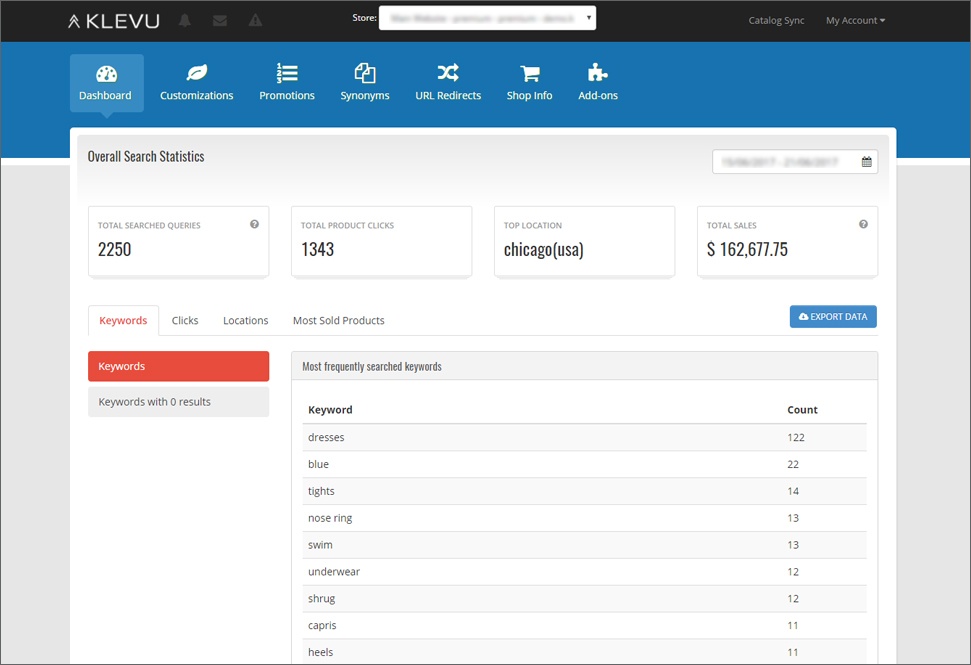
As smartphone usage continues to grow rapidly, it’s likely that ecommerce sites will change significantly over the next few years, with traditional navigation menus giving way to on site search as the primary tool for accessing content. As such, it’s vital that all ecommerce retailers look closely at how best to deliver their product catalogs (and other types of content) to customers, and search needs to be at the forefront of their minds.
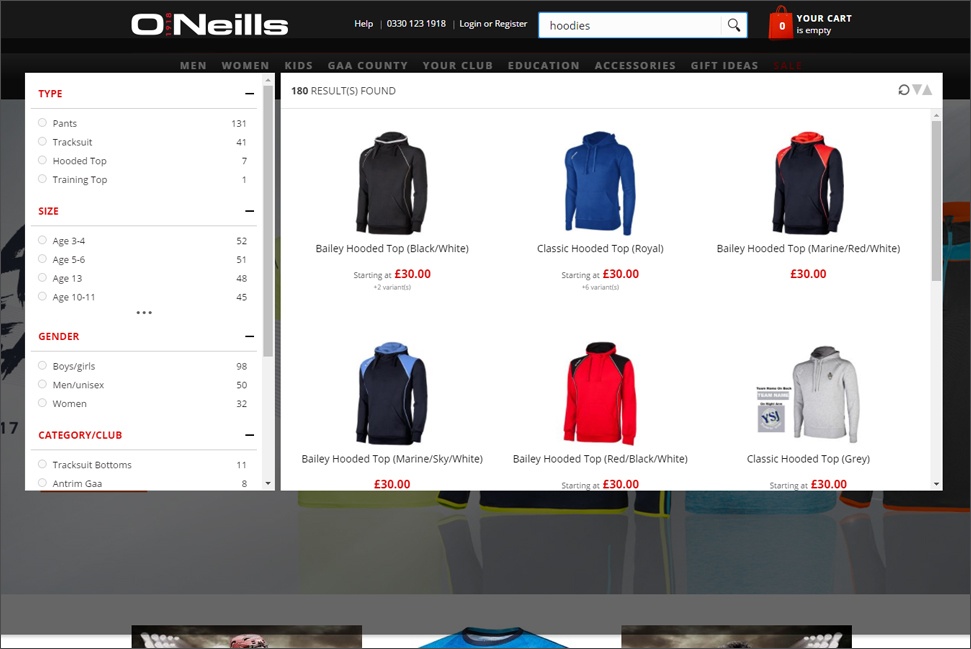
Magento has gone some way to addressing the shortcomings of its on-site search in recent releases, especially with the integration options for Elasticsearch, but for many retailers, a third-party solution will be the obvious option, going forwards. Best of breed smart search solutions are already working with enterprise clients to deliver significant conversion rate gains, and it’s likely that we’ll continue to see strong take-up of premium search technology, across all sectors and sizes of business, for a long time to come.


